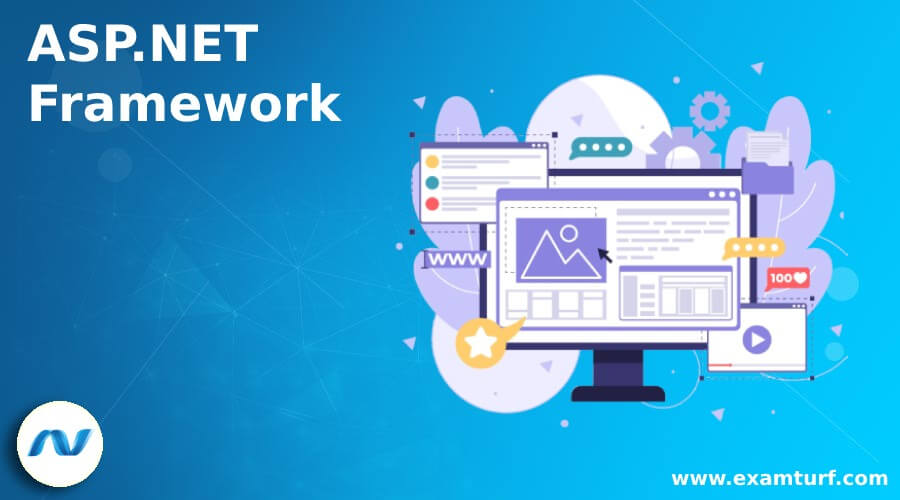
Introduction To ASP.NET Framework
In simple words, ASP.NET is an open-source web framework. Here ASP stands for Active Server Page (ASP) and .Net is pronounced as (dot net). Basically, the ASP.Net is a framework or in simple terms a programming model developed by Microsoft, which enables building and running the applications for Windows devices such as Desktops, Phones, Servers, XML web services, and Azure. ASP.Net Framework comes with a large number of libraries in-built which is called Framework Class Library (FCL) and Common Language Runtime is known as (CLR). FCL provides the feasibility of using the code written in one language to be used in another language, CLR can be understood as an Application Virtual Machine, it helps in memory management, security services, and exception handling. These two CLR and FLC together create ASP.Net Framework. Let us discuss ASP.NET Framework.
Why ASP.NET Framework Is Used?
As we understand ASP.Net framework comes up with FCL which has lots of libraries inbuilt in it, which makes it desirable for web developers. There are many reasons why to use ASP.NET; it comes with vast language support, low cost, high speed.
.Net Framework supports various programming languages such as C, C#, VB .Net, F#. The .Net Framework provides a Base Class Library which helps in programming areas such as Interface mapping, data access, data connectivity, cryptography, network communication, and web application development.
FCL has a number of features which include database connectivity, data access, user interface, numeric algorithms, and network communication. The framework is used in most new applications that are created for Windows systems. Microsoft has provided an IDE (Integrated Development Environment) known as Visual Studio.
Use Cases Of .NET Framework
In a nutshell if one wants to know what one can do with the ASP.NET framework, so below are use cases of the .NET framework:
- Build end-to-end data driven ASP.NET web application or website from scratch.
- Implement Authorization and Authentication functionality.
- By using Code first pattern build Database and Migration.
- Make use of Entity framework core to interact with Database.
- Asynchronous programming and track changes with Git & GitHub.
- Setting as well as Publishing to Remote Database as well as IIS.
- A developer can set an automated Build and Release pipeline using Azure DevOps.
Advantages Of ASP.NET Framework
There are a couple of advantages with ASP.NET Framework which makes it a developer’s choice.
Some of the advantages are given below:
- Reduces the effort drastically required to build the code for large applications.
- The applications build with .NET are safe & secure as they come up with built-in Windows Authentication.
- .NET offers better performance as it binds early and provides just-in-time compilation.
- It provides language independence, i.e. code written in one language can easily be used in another language.
- It is simple to use and performing common tasks like submission and authentication are quite easy with .NET Framework.
- It is easy to write and maintain as both source code and HTML are together, which makes it flexible for the developer.
- Deployment is easy as well.
How Does Framework Work?
- In simple terms, one can understand the framework as it enables the source code to be executed on the Internet server.
- Basically, when a web page is requested by the user, the ASP engine will read the file, execute the code, and returns the results.
Conclusion
ASP.NET is a complete and great framework to develop web applications and websites. .NET Framework is easy to use, reliable, widely used, and of course, is available free of cost. Whether it’s a big project or small, ASP.NET provides you full control of the development. It is one of the most popular frameworks in today’s era.
Recommended Articles
This is a guide to ASP.NET Framework. Here we discuss the introduction, how it works and use cases of the .NET framework along with its advantages. You can also go through our other suggested articles to learn more –
Are you preparing for the entrance exam ?
Join our Programming Languages test series to get more practice in your preparation
View More